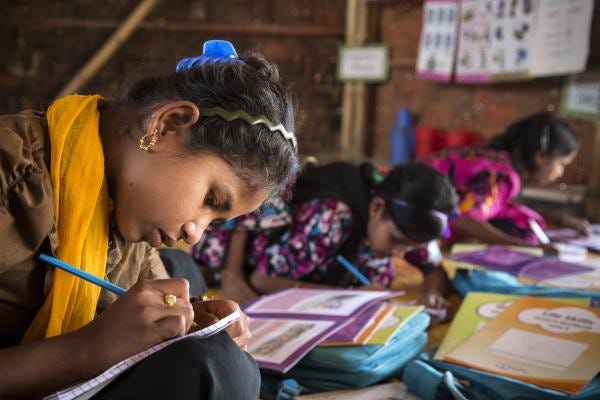
Image Source: UNICEF
What is the NEP?
With an aim to make “make India a global knowledge superpower” over the next 10 years, the government of India launched the National Education Policy of 2020. It brings along a large number of changes including, but not limited to:
Increase GDP expenditure on education from 1.7% to 6%
Increased focus on vocational studies
Flexibility in higher education with options to the students such as three-year or four-year Bachelor’s degree, one-year Master’s degree, exit options and multidisciplinary education.
Introduction of Higher Education Commission of India (HECI), a common regulatory body for higher education
HRD ministry to be renamed as the Ministry of Education
We look at some of the issues the NEP failed to address
6% but where?
Currently, Govt spending on elementary education: 1.75% of total GDP
Private spending: 0.71%
We need a clearer idea on where this money will be spent, and how will it be used to improve the efficiency of the government institutes as compared to the private institutes.
No Mention of the RTE or Reservations
I, personally, do not believe in caste/income/gender reservations in higher education. If you are not empowering the 5 year old girl to enroll in school, then you end up helping an already privileged section of the society by giving them reservations for higher education.
Moreover, you push a weaker student to compete with, well, stronger students. Yes, exposure is important, but at an elementary level. The NEP mentions minorities in passing, without any categorization or plan for implementation, and also ignores the RTE altogether.
Vocational Courses and Projects
The problem with their introduction, but no guidelines on implementation, is the on-ground implementation- it ends up being either a free period or a project that the student’s elder sibling or a ‘Science Expert’ in Yusuf Sarai ends up doing.
In the Job Run
Realistically, the bottom line for higher education is better placements. Would a recruiter prefer this new wave of stream-fluid students? Would a Humanities degree from an IIT hold value soon enough to be implementable? Will the students find it effective to spend time and effort to get theatre credits? Who comes first? The chicken or the egg?
The Bottom Line
All in all, I believe this is a large step in the right direction. The NEP is the result of a long overdue amendment in the Indian education system, and with the right implementation and governance, we will be able to achieve these goals collectively.



